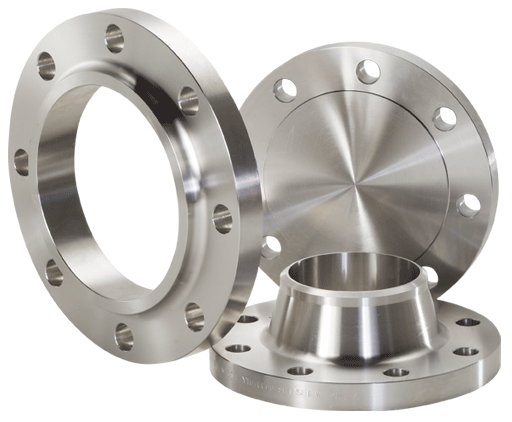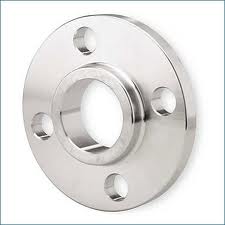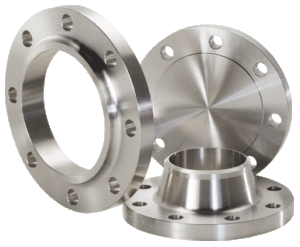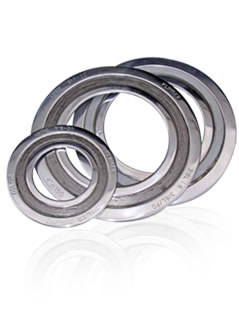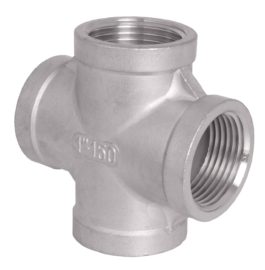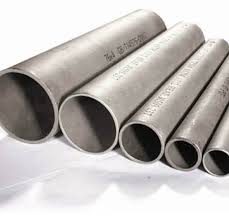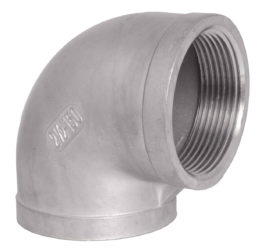Description
Industrial flange Supplies are critical components used in a wide range of industries to connect pipes, valves, pumps, and other equipment together. Their primary purpose is to provide a strong and leak-proof joint between two separate sections of a piping system. Flanges play a crucial role in maintaining the integrity and efficiency of various industrial processes.
The design of industrial flanges is based on several factors, including the type of application, the size and pressure rating of the pipes, and the fluid or gas being conveyed. Flanges are typically made from materials such as carbon steel, stainless steel, aluminum, or brass, depending on the specific requirements and environmental conditions.
There are several types of industrial flanges, each with its unique design and functionality. The most commonly used flanges include slip-on flanges, weld-neck flanges, socket weld flanges, threaded flanges, lap joint flanges, and blind flanges. Each type serves a specific purpose and offers distinct advantages in terms of installation, maintenance, and performance.
Slip-On Flanges
Slip-on flanges are the most straightforward type and are suitable for low-pressure applications. They are slipped over the pipe and then welded in place, providing a secure connection. Weld-neck flanges, on the other hand, have a long tapered hub, making them ideal for high-pressure and high-temperature applications as they distribute stress evenly across the flange.
Socket Weld Flanges
Socket weld flanges are designed for smaller pipe sizes and are welded directly to the pipe, providing a smooth and continuous flow path. Threaded flanges, as the name suggests, have internal threads that allow them to be screwed onto the pipe without the need for welding. Lap joint flanges are used in systems requiring frequent dismantling, as they can be easily aligned and bolted together.
Blind Flanges
Blind flanges, also known as blank flanges, are used to close the end of a piping system. They are commonly used during testing and maintenance procedures or in situations where future extensions might be needed.
Pressure Classes
Industrial flanges also come in various pressure classes, including 150, 300, 600, 900, 1500, and 2500, which indicate the flange’s ability to withstand pressure. The selection of the appropriate pressure class is crucial to ensure the flange can withstand the forces exerted by the fluid or gas within the system.
Installation of industrial flanges requires careful consideration to ensure proper alignment and gasket selection. A gasket, typically made of materials like rubber or compressed fiber, is placed between the flange faces to create a seal and prevent leaks. The choice of gasket depends on the operating conditions, temperature, and medium being transported.
Flange connections are secured using bolts that pass through matching holes in the flange. The number and size of bolts are determined by the flange’s size, pressure rating, and material. Bolts must be tightened evenly and to the specified torque to maintain a leak-proof joint.
Regular inspection and maintenance of industrial flanges are essential to prevent leaks, corrosion, and other issues that can compromise the system’s functionality and safety. Flanges should be checked for signs of damage, such as cracks, deformation, or corrosion, and replaced if necessary.
Components
In conclusion, industrial flanges are vital components in piping systems, providing secure and leak-proof connections. With various types, materials, and pressure classes available, flanges are adaptable to different applications and can withstand various operating conditions. Proper installation, maintenance, and inspection ensure their reliability and longevity, contributing to safe and efficient industrial operations.
Industrial flanges play a crucial role in a wide range of industries, including oil and gas, chemical processing, power generation, water treatment, and many others. They serve as the backbone of piping systems, allowing for the efficient and reliable transportation of fluids and gases within an industrial facility.
One of the significant advantages of industrial flanges is their ability to accommodate different pipe sizes and types. By using flanges, pipes with varying diameters and materials can be connected seamlessly, enabling compatibility between different sections of a piping system. This versatility facilitates the integration of various components and equipment, such as valves, pumps, and tanks, ensuring a cohesive and functional system.
Maintenance
Flanges also provide ease of maintenance and repair. In industrial settings, it is common to have frequent equipment inspections, repairs, and modifications. Along with flanged connections, it is much simpler to disassemble and reassemble sections of the piping system, allowing for efficient maintenance activities without disrupting the entire system. This flexibility saves both time and resources, enabling quick repairs and minimizing downtime.
Furthermore, industrial flanges contribute to the overall safety and reliability of piping systems. The secure connection created by properly installed flanges helps prevent leakage of hazardous materials, reducing the risk of environmental contamination and ensuring the safety of personnel working in the facility. Flanges also provide a higher level of structural integrity by distributing forces and stresses evenly across the joint, improving the system’s ability to withstand high pressures and temperature fluctuations.
Gasket Selections
Gasket selection is another critical aspect of industrial flange design. Gaskets provide a reliable seal between the flange faces, preventing leakages and ensuring the integrity of the system. Different gasket materials are available to suit specific applications, including rubber, graphite, PTFE (polytetrafluoroethylene), and spiral-wound gaskets. Whereas, the choice of gasket material depends on factors such as temperature, pressure, and the type of fluid or gas being transported.
In addition to their functional advantages, industrial flanges adhere to various international standards to ensure quality and interchangeability. Additionally, Organizations such as the American Society of Mechanical Engineers (ASME) and the International Organization for Standardization (ISO) provide guidelines and specifications for flange dimensions, pressure ratings, materials, and testing requirements. Also, adhering to these standards ensures compatibility between different manufacturers and facilitates easy replacement or expansion of existing systems.
It is worth mentioning that the field of industrial flanges continues to evolve with technological advancements.
To summarize, industrial flange Supplies are essential components that facilitate the efficient and secure connection of pipes, valves, and equipment in industrial settings. Their versatility, ease of maintenance, safety features, and adherence to international standards make them indispensable in various industries.
Advantages of Industrial Flange Supplies
Secure and leak-proof connections
Industrial flanges provide a strong and reliable joint, ensuring that fluid or gas does not leak from the piping system. This reduces the risk of environmental contamination and ensures the safety of personnel.
Versatility
Flanges can accommodate pipes of different sizes, materials, and types, allowing for the integration of various components and equipment. This flexibility enables compatibility and adaptability within a piping system.
Easy installation and maintenance
Flanged connections are relatively easy to install and dismantle, making maintenance, repairs, and modifications more efficient. This results in reduced downtime and cost savings.
Structural integrity
Flanges distribute forces and stresses evenly across the joint, enhancing the overall structural integrity of the piping system. They are designed to withstand high pressures and temperature fluctuations, ensuring reliable operation.
Standardization and interchangeability
Industrial flanges adhere to international standards, ensuring compatibility and interchangeability between different manufacturers. This simplifies the replacement or expansion of existing systems.
Disadvantages of Industrial Flanges
Cost
Industrial flanges, especially those designed for high-pressure or specialized applications, can be expensive. Along with the cost of materials, manufacturing, and installation should be taken into account when planning a piping system.
Space requirements
Flanged connections can take up more space compared to other types of pipe connections, such as threaded or welded joints. Finally, this may be a constraint in limited space environments.
Bolt tensioning
Proper bolt tightening is crucial to maintaining a leak-proof joint. Furthermore, the process of bolt tensioning requires precision and expertise to achieve the correct level of tightness. Insufficient or uneven bolt tensioning can result in leakage.
Potential for corrosion
Depending on the material used and the operating environment, industrial flanges may be vulnerable to corrosion. Not only but also, Regular inspections, maintenance, and application of appropriate coatings or protections can mitigate this risk.
Complexity in gasket selection
Choosing the right gasket material based on the system’s operating conditions can be challenging. Additionally, the selection process requires consideration of factors such as temperature, pressure, and compatibility with the fluid or gas being transported.
Overall, the advantages of industrial flanges, including their secure connections, versatility, ease of installation and maintenance, and standardized design, outweigh the potential drawbacks. Besides, proper planning, installation, and maintenance can help minimize any disadvantages, ensuring the reliable and efficient operation of piping systems.
Industries that use Industrial Flange Supplies
Industrial flanges are utilized in a wide range of industries that rely on complex piping systems for the transportation of fluids or gases. Some of the main industries that heavily rely on industrial flanges include:
Oil and Gas Industry
The oil and gas industry extensively utilizes industrial flanges for various applications, including upstream exploration and production, midstream processes like transportation and refining, and downstream distribution. Flanges help connect pipes, valves, and equipment in oil rigs, refineries, and pipelines.
Chemical and Petrochemical Industry
Industrial flanges are crucial in chemical and petrochemical plants for the safe and efficient transfer of various chemicals and fluids. Also, they are used in processes such as chemical synthesis, distillation, and refining where different substances need to be transported and separated.
Power Generation Industry
Power plants, including thermal, nuclear, and renewable energy facilities, heavily rely on industrial flanges for steam, water, and gas transportation. Moreover, Flanges are used in boilers, heat exchangers, turbines, and other components of power generation systems.
Water and Wastewater Treatment Industry
Industrial flanges play a vital role in water treatment plants, wastewater treatment plants, and desalination facilities. Moreover, they help connect pipes and equipment for the distribution, treatment, and conveyance of water, chemicals, and wastewater.
Pharmaceutical and Biotechnology Industry
Industrial flange Supplies are utilized in the pharmaceutical and biotechnology sectors for various processes, such as drug manufacturing, sterile filtration, and fluid transfer. They ensure the safe and hygienic transportation of critical substances.
Food and Beverage Industry
In the food and beverage industry, industrial flange Supplies are used to connect pipes and equipment in processing plants for the handling and transportation of liquids, including beverages, dairy products, sauces, and oils.
Mining Industry
Mining operations rely on industrial flanges for the transportation of mineral slurries, chemicals, and water used in the extraction and processing of minerals. Also, Flange Supplies are utilized in pipelines, pumps, and various equipment for efficient material handling.
Construction Industry
Industrial flange Supplies find applications in construction projects where large-scale plumbing systems are required. Moreover, they are used in commercial buildings, industrial facilities, and infrastructure projects for the transportation of water, gases, and other fluids.
These are just a few examples of the industries that use industrial flanges extensively. Also, the versatility and reliability of flanges make them essential components in numerous other sectors. This is where the safe and efficient transportation of fluids or gases is critical to operations.
Specifications
There are many different Flange Supplies standards to be found worldwide. To allow easy functionality and interchangeability, these are designed to have standardized dimensions.
Common world standards include ASA/ANSI/ASME (USA), PN/DIN (European), BS10 (British/Australian), and JIS/KS (Japanese/Korean).
In most cases, these are interchangeable as most local standards have been aligned to ISO standards. However, some local standards still differ (e.g. an ANSI/ASME flange will not mate against an ISO flange).
Flanges Pressure Class Specifications
Further, many of the Flange Supplies in each standard are divided into “pressure classes”, allowing them to be capable of taking different pressure ratings. Again these are not generally interchangeable (e.g. an ANSI/ASME 150 will not mate with an ANSI/ASME 300).
These pressure classes also have differing pressure and temperature ratings for different materials. Unique pressure classes for piping can also be developed for a process plant or power generating station; these may be specific to the corporation, engineering procurement and construction (EPC) contractor, or process plant owner.
The ANSI/ASME pressure classes for Flat-Face flanges are 125# and 250#. The classes for Ring-Joint, Tongue & Groove, and Raised-Face flanges are 150#, 300#, (400# – unusual), 600#, 900#, 1500#, and 2500#.
The flange faces are also made to standardized dimensions and are typically “flat face”, “raised face”, “tongue and groove”, or “ring joint” styles, although other obscure styles are possible.
Flange designs are available as “weld neck”, “slip-on”, “lap joint”, “socket weld”, “threaded”, and also “blind”.

